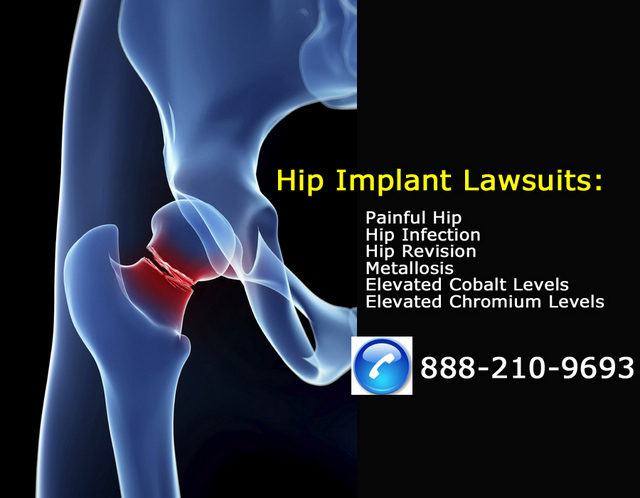The FDA issued two final orders to vaginal mesh manufacturers and notified the public that the agency is strengthening the medical data requirements for surgical mesh.
Dr Shezad Malik Law Firm has offices based in Fort Worth and Dallas and represents people who have suffered catastrophic and serious personal injuries including wrongful death, caused by the negligence or recklessness of others. We specialize in Personal Injury trial litigation and focus our energy and efforts on those we represent.
Articles Tagged with Johnson & Johnson
J&J Ethicon Prolift Vaginal Mesh $12.5M Verdict
 $12.5M Verdict and Punitive Damages Awarded
$12.5M Verdict and Punitive Damages Awarded
Hammons, was awarded $5.5 million in compensatory damages and $7 million in punitive damages against Johnson & Johnson’s Ethicon subsidiary. Punitive damages are rarely awarded in product liability and personal injury lawsuits, and are designed to punish the company for gross negligence and reckless disregard for the safety of patients.
Risks of Cancer Spread After Laparoscopic Hysterectomy
In the United States, Hysterectomy is the second most frequently performed surgical procedure (after cesarean section). The majority of these hysterectomies are performed laparoscopically.
What is Laparoscopic Hysterectomy?
Minimally invasive or laparoscopic removal of the uterus, is know as hysterectomy and typically performed for the treatment of fibroids or benign tumors of the uterus. During the surgery, many doctors remove the uterus in pieces using a mechanical grinding or chopping device known as a power morcellator.
Recently, many personal injury and wrongful death lawsuits being filed against the manufacturers of power morcellators. The injured women claim that patients and doctors should have been warned about the risks associated with use of the medical devices during minimally invasive, laparoscopic hysterectomies.
What Are Power Morcellators?
Power morcellators are medical devices that are used during laparoscopic hysterectomy and myomectomy (fibroid removal) procedures. The device allows the surgeon to grind up the uterus or uterine fibroids and remove the tissue through a small incision in the abdomen. The medical device is used during minimally invasive surgery, and reduces recovery time, scarring and speeds up recovery time.
How Morcellator Increases the Risk of Uterine Cancer Spread
According to medical experts and the FDA, about one out of every 350 women undergoing a laparoscopic hysterectomy with morcellation may have undiagnosed sarcoma, which doctors are unable to detect before the surgery. Undiagnosed uterine sarcoma is highly malignant and is a lethal form of cancer, with poor life expectancy and treatment options. Most women die shortly after diagnosis and there are no curative treatments.
There is no bullet proof way for doctors to diagnose the uterine cancer before using the morcellator devices. Because of this, the FDA strongly urged doctors to avoid using the devices for laparoscopic hysterectomy or myomectomy procedures in April 2014. The FDA issued a BLACK BOX WARNING against the use of these devices in November 2014.
Power morcellators spread this undiagnosed leiomyosarcoma, endometrial stromal sarcoma or other cancer throughout the pelvis and abdomen during the grinding process, leading to rapid upstaging of the cancer and reducing the risk of long-term survival. As this risk becomes known, many doctors and hospitals have stopped the use of power morcellators over the past year.
Morcellators Approved Under the 510(k) Program
The controversial 510(k) program allows medical devices to be approved without pre-market testing requirements. Under the program, the manufacturer just needs to show that the devices are “substantially equivalent” to devices already on the market. Power morcellators were approved under the 510(k) process without any safety testing.
J&J Ethicon Morcellator Recall
All Ethicon power morcellators were recalled by the manufacturer, in 2014. J&J, acknowledged that the devices pose an unreasonable risk of spreading uterine cancer. Ethicon, a J&J subsidiary requested that hospitals voluntarily return all laparoscopic surgery morcellators. The company, noted that it will no longer sell the devices since there is no way to make them safe.
FDA Morcellator Black Box Warning
The FDA announced November 24, 2014 that it is adding a black box warning to uterine morcellator devices that remain on the market. A BLACK BOX WARNING, is the strongest warning that can be placed on any medical device.
Patients, doctors and hospitals are now on notice of the potential danger of increased uterine cancer spread risk associated with the use of these devices. Furthermore, the FDA announced that power morcellators should not be used with women near menopause or post-menopausal, or in women who could have tissue removed through the vagina or via a small incision.
This contraindication prohibits the use of the devices in the vast majority of women who undergo laparoscopic or vaginal uterine morcellation procedures.
Many complaints have been filed in the federal court system nationwide. These women were diagnosed with the spread of leiomyosarcoma, endometrial stromal sarcoma or other cancers following uterine fibroid surgery.
The U.S. District Court for the District of Kansas was recently approved for the centralization and consolidation in a multidistrict litigation (MDL) court. This is centralized only against Johnson and Johnson’s subsidiary, Ethicon morcellator manufacturer.
This means that all federal morcellator lawsuits will be consolidated for pre-trial discovery and early bellwether trials in the U.S. District Court for the District of Kansas. Federal courts consolidate lawsuits to MDLs when a large number of plaintiffs claim the same facts against the same defendant. The process allows the courts to operate more efficiently and decreases the costs for all parties involved.
All of the lawsuits filed against manufacturers of these devices claim that hysterectomy morcellators are unreasonably dangerous and that information about the risk of uterine cancer being spread was withheld from the patients and doctors.
Can Hysterectomy Cause Uterine Cancer Spread?
Short answer, yes, by causing the spread of undiagnosed malignant uterine cancer. In American women who are of reproductive age, Hysterectomy is the second most frequently performed surgical procedure (after cesarean section). The majority of these hysterectomies are performed laparoscopically.
 According to the Centers for Disease Control and Prevention (CDC), from 2006-2010, 11.7 percent of women between the ages of 40-44 had a hysterectomy.
According to the Centers for Disease Control and Prevention (CDC), from 2006-2010, 11.7 percent of women between the ages of 40-44 had a hysterectomy.
Approximately 600,000 hysterectomies are performed annually in the United States, and approximately 20 million American women have had a hysterectomy.
By the age of 60, more than one third of all women have had a hysterectomy. According to the National Women’s Health Network (NWHN) unnecessary hysterectomies have put women at risk, and that doctors should search for hysterectomy alternatives before performing life-changing operations.
What is Laparoscopic Hysterectomy?
Minimally invasive or laparoscopic removal of the uterus, is know as hysterectomy and typically performed for the treatment of fibroids or benign tumors of the uterus. During the surgery, many doctors remove the uterus in pieces using a mechanical grinding or chopping device known as a power morcellator.
Alarming Rate of Metal Hip Implant Failure Nationwide
There are a shocking number of metal on metal hip implant replacement failures. The epidemic of premature metal on metal hip implant failure continues surge at an alarming rate. DePuy ASR, DePuy Pinnacle, Biomet M2A Magnum, Smith and Nephew Birmingham and R3, Wright Profemur and Conserve, Zimmer Durom cup and Stryker Rejuvenate and ABG II and Encore, are among hip replacements that continue to fail prematurely and require painful and risky revision surgery.
 Total Number of DePuy ASR Settlements Exceeds 9,400 Cases
Total Number of DePuy ASR Settlements Exceeds 9,400 Cases
Johnson and Johnson (J&J) and its subsidiary DePuy Orthopaedics, has agreed to add another 1,400 hip injury claims to a settlement agreement reached in 2013. This new agreement extends the deal to include recalled ASR implants that were revised as of January 31, 2015.
J&J had initially agreed to settle about 8,000 ASR lawsuit cases, that folks brought when their hip replacement failed and had to be removed prior to August 31, 2013. The initial agreement left several thousand DePuy ASR hip lawsuits in limbo.
Shocking Number of Metal on Metal Hip Implant Failures
Total Number of DePuy ASR Settlements Exceeds 9,400 Cases
Johnson and Johnson (J&J) and its subsidiary DePuy Orthopaedics, has agreed to add another 1,400 hip injury claims to a settlement agreement reached in 2013. This new agreement extends the deal to include recalled ASR implants that were revised as of January 31, 2015.
Metal on Metal Hip Implants Continue to Fail
Total Number of DePuy ASR Settlements Exceeds 9,400 Cases
Johnson and Johnson (J&J) and its subsidiary DePuy Orthopaedics, has agreed to add another 1,400 hip injury claims to a settlement agreement reached in 2013. This new agreement extends the deal to include recalled ASR implants that were revised as of January 31, 2015.
Morcellator Hysterectomy and FDA Black Box Warnings
![]() FDA Black Box Warning for Power Morcellators
FDA Black Box Warning for Power Morcellators
The FDA has hammered the laparoscopic power morcellator devices with the strongest warning possible, requiring the morcellators to have a black box warning concerning the risk of cancer spread.
Invokana Diabetes Drug Side Effects Lawsuits
What is Invokana?
Johnson & Johnson’s Janssen Pharmaceuticals unit manufactures and distributes Invokana (canagliflozin), for patients with type-2 diabetes, to control their blood-sugar levels. The drug has achieved blockbuster status, in that it is set to blow past a billion dollars in sales in 2015.
 Dallas Fort Worth Injury Lawyer Blog
Dallas Fort Worth Injury Lawyer Blog


